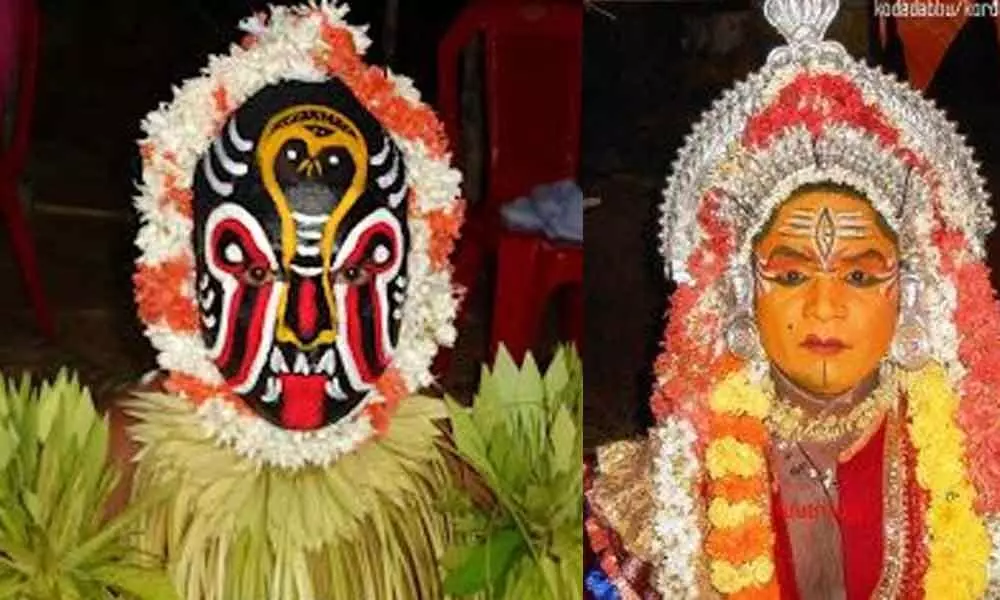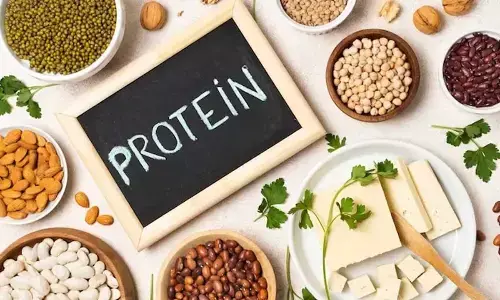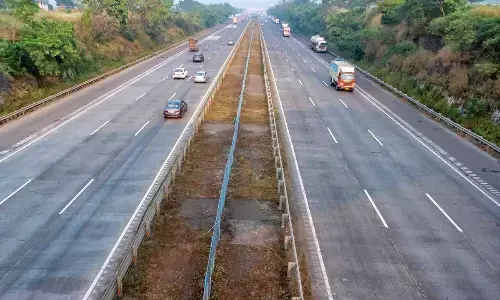Kordabbu-Rahu Guliga legend keeps up spirit of communal harmony

This part of the coast has been hailed as the wonderland of folk and performing arts, great Nordic scholars have documented the folk and performing arts of the Karnataka coast like Daviradhane, Bootha Kolas and Parddanas.
Mangaluru: This part of the coast has been hailed as the wonderland of folk and performing arts, great Nordic scholars have documented the folk and performing arts of the Karnataka coast like Daviradhane, Bootha Kolas and Parddanas.
They were delighted to see and record the communal harmony angle that was embedded into the practice of this ritualistic theatre. Late Peter J Claus, an anthropologist from California University, and Dr Lauri Honko from of Nordic institute of Kalevala in Turku University in Finland, have specially mentioned the brotherhood of Kordabbu-Rahu Guliga daivas (spirits) that has been practised by the people on the coast.
Daivas are now becoming more popular among all the cross-sections of the society- minorities included, says Dr Ashok Alva, an authority on the spirit worship on the coast. "There were times not long ago when the spirit worship was practised by the backward classes and Dalits, but in the last three decades, it is gaining momentum in all strata of socio-religious life on the coast. There may be many socio-religious aspects to be studied"
The recent Bootha kola (spirit worship) event at Shantiguri at Neerumarga in Mangaluru taluk was a big crowd puller, this area is one of the repositories of Tuluva culture where upper-caste Hindus, Dalits, Muslims, Christians and Backward classes participate in the Bootha Kola, which is an all-night event where offerings are made to the Daiva like flowers. In Koragajja Daiva they even offer liquor, snacks and beedas.
The Kordabbu-Rahu Guliga are rarely seen together in a Bootha Kola, but there are only a few shrines in remote villages that have this special brotherhood of Kordabbu and Rahu Guliga. At Shantiguri Bootha Kola it was a bigger crowd than usual. "It is the integration of the micro-community here that is on show. The religious and communal divides do not matter anymore, both our Boothas are known for their brotherhood and it is believed and also experienced that the Boothas are great uniters of people and families," says Rajesh Shetty, an elderly man form Shantiguri village. The coast, especially the two districts of Udupi and Dakshina Kannada will open up for a two-month season of Bootha Kolas or Nema from February. Guliga, Panjurli, Dhoomvati, Malaraya, Koraga Taniya, Koragajja and many others across the coast till it is time for the monsoons to arrive.








